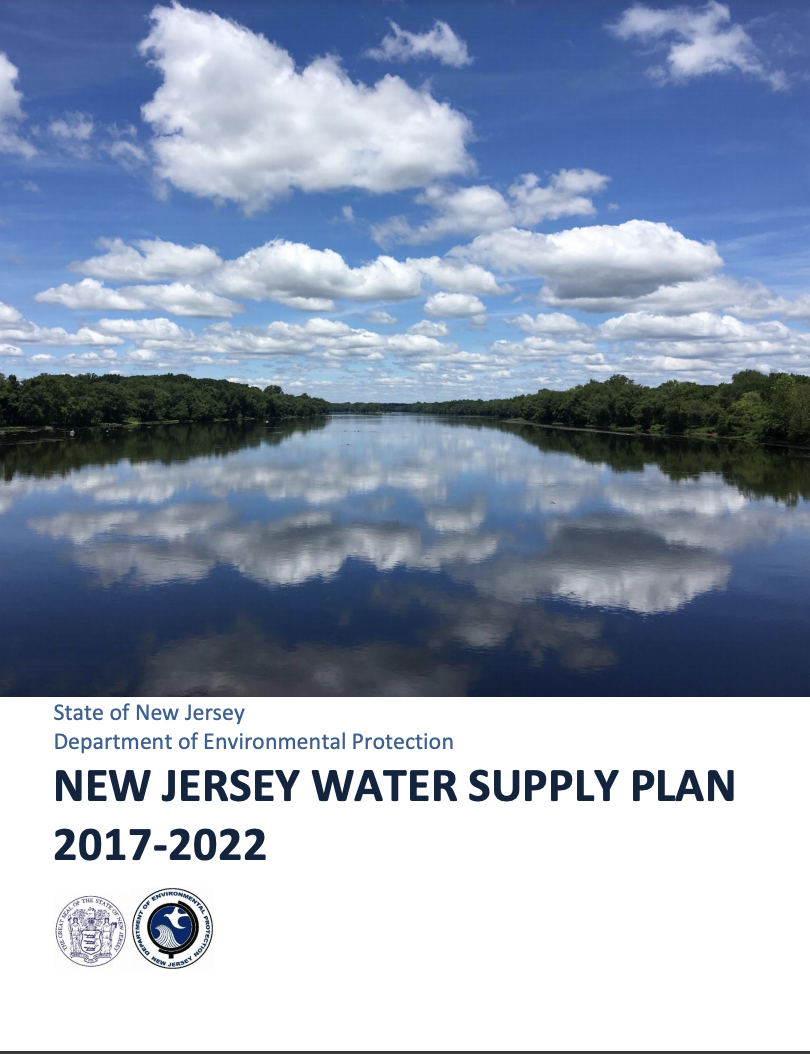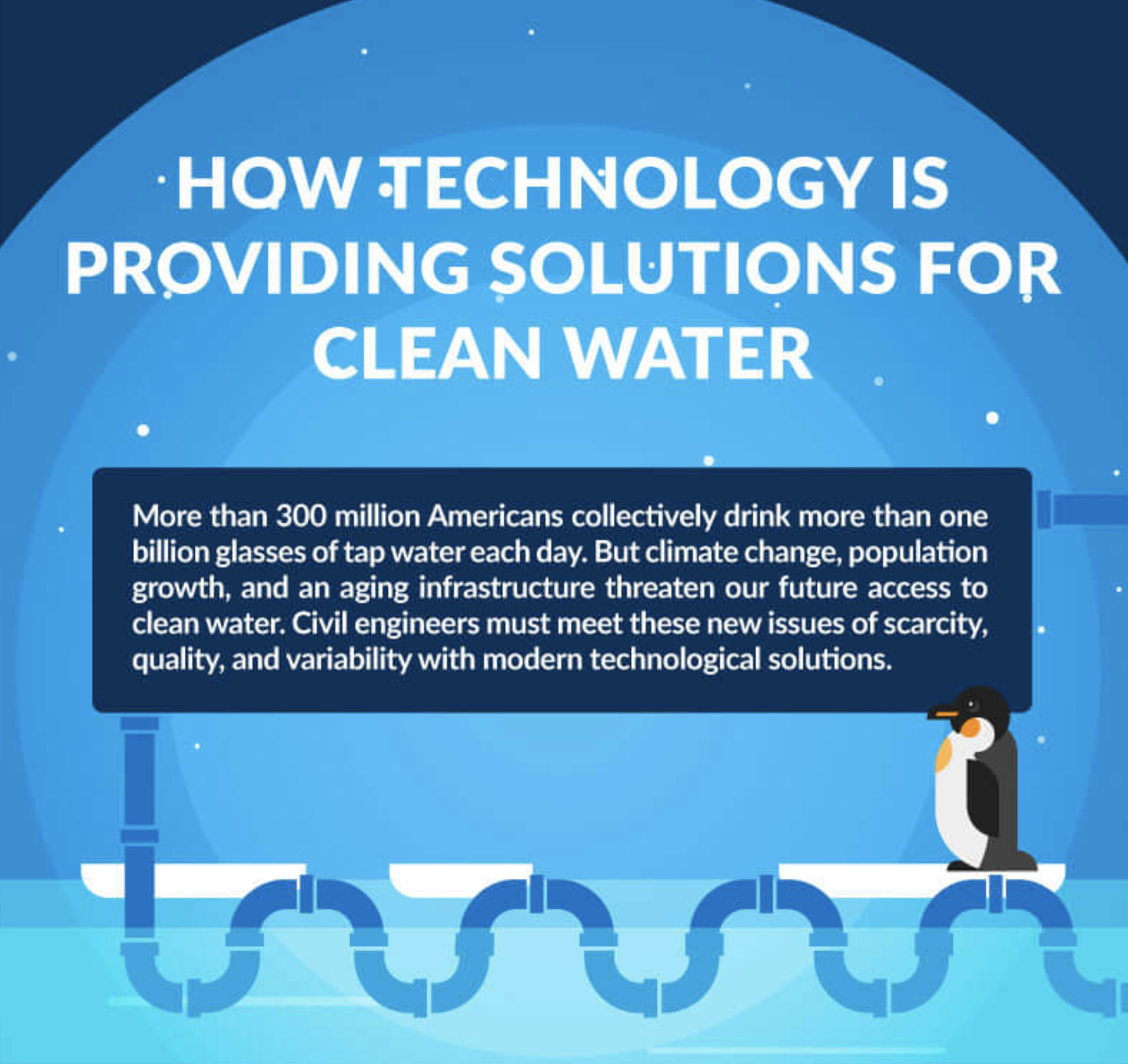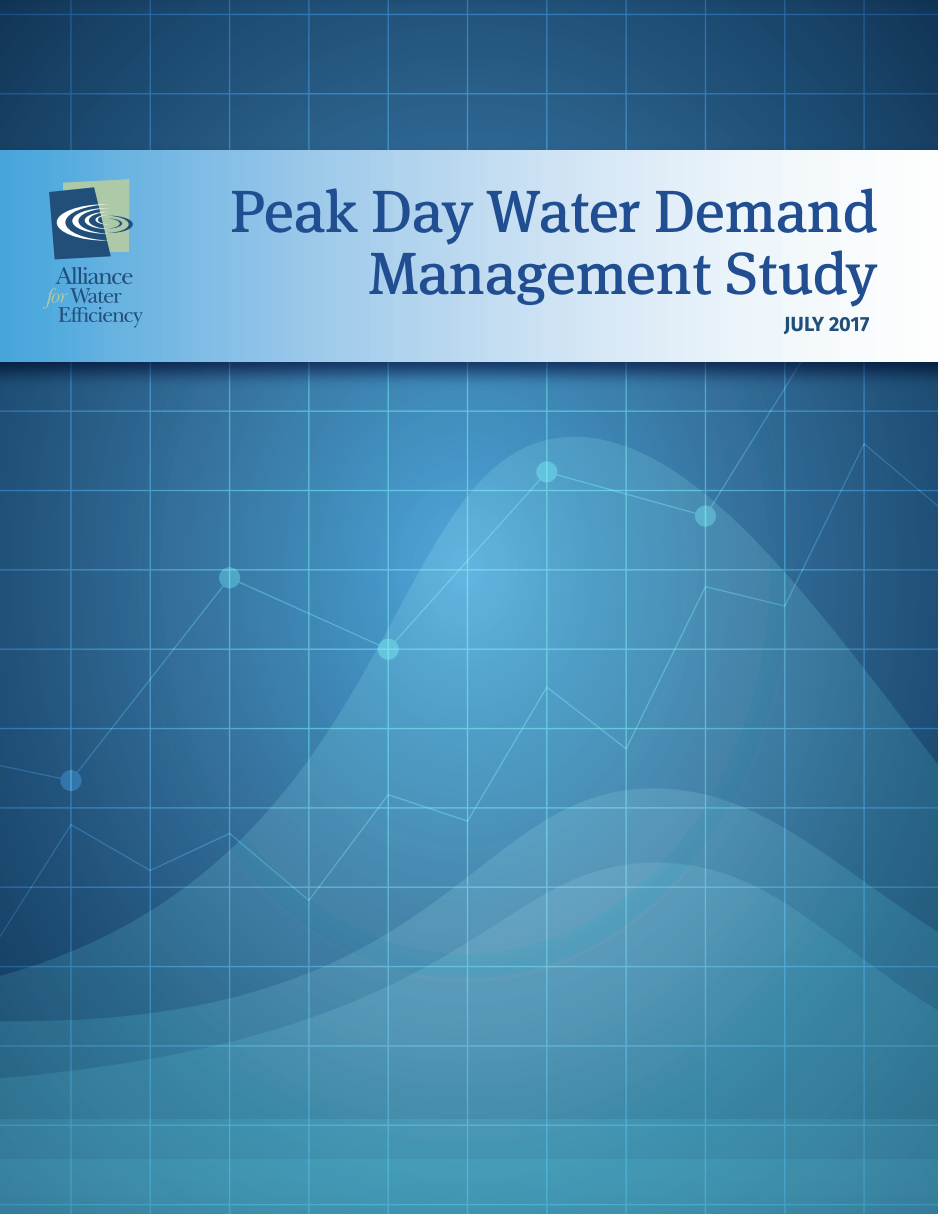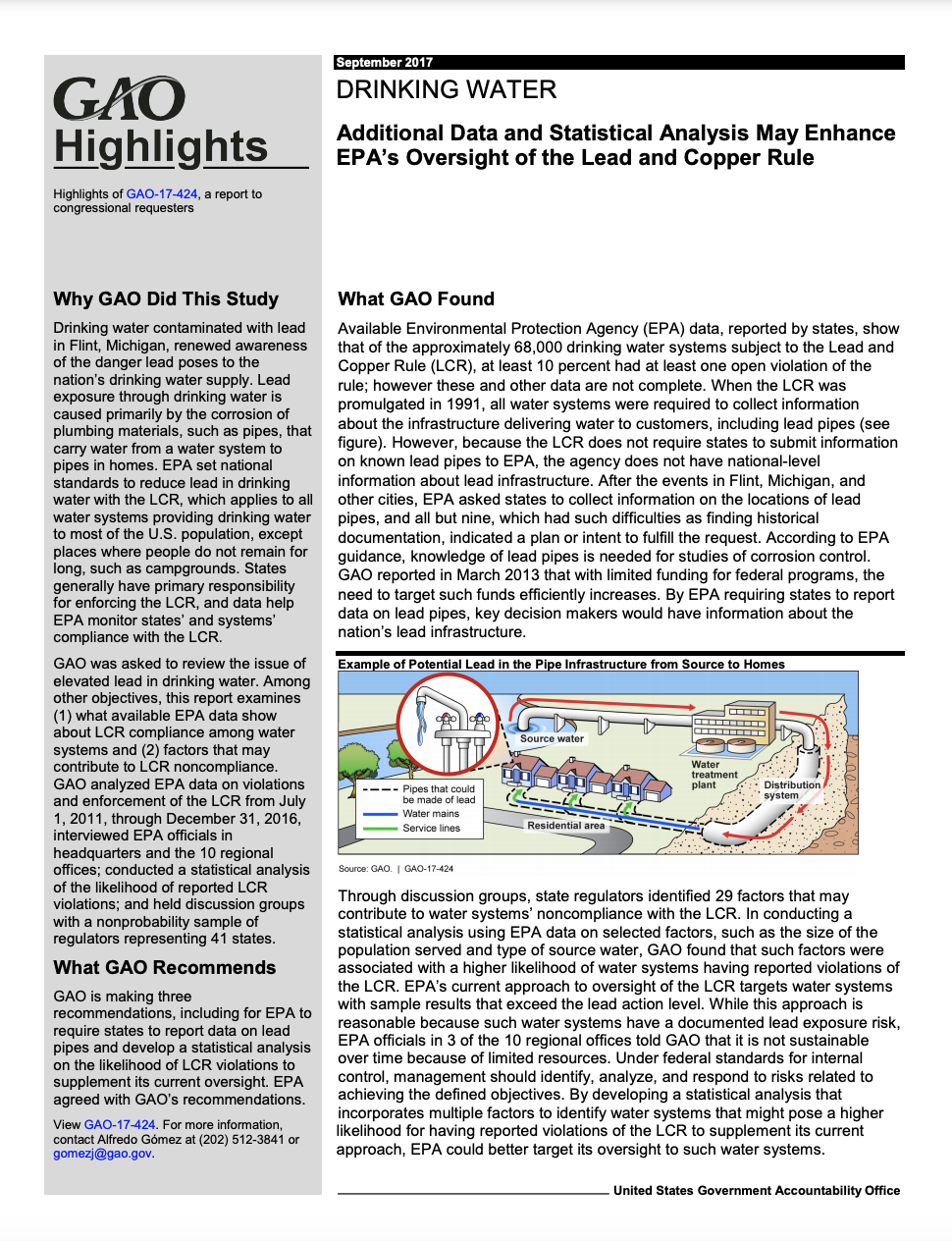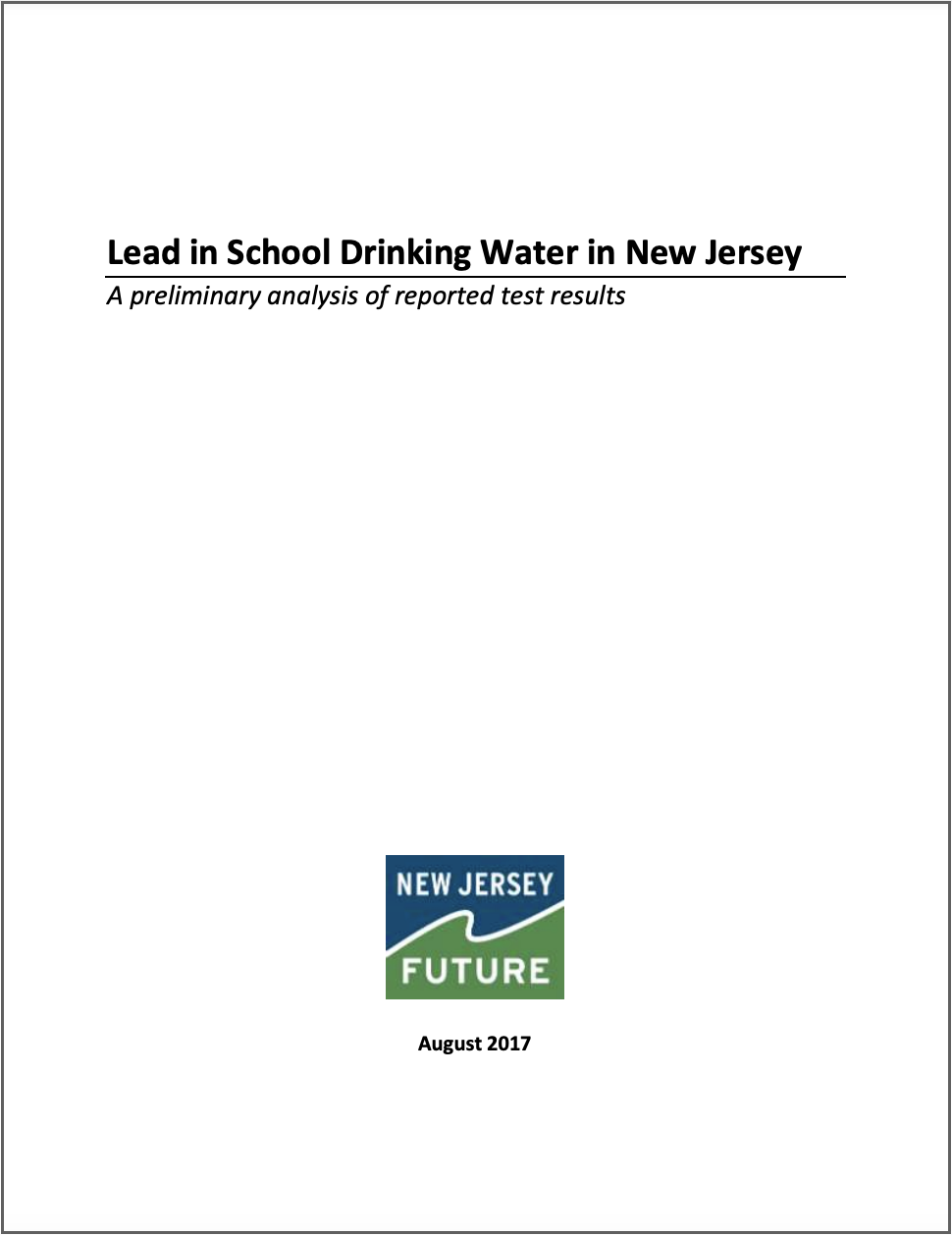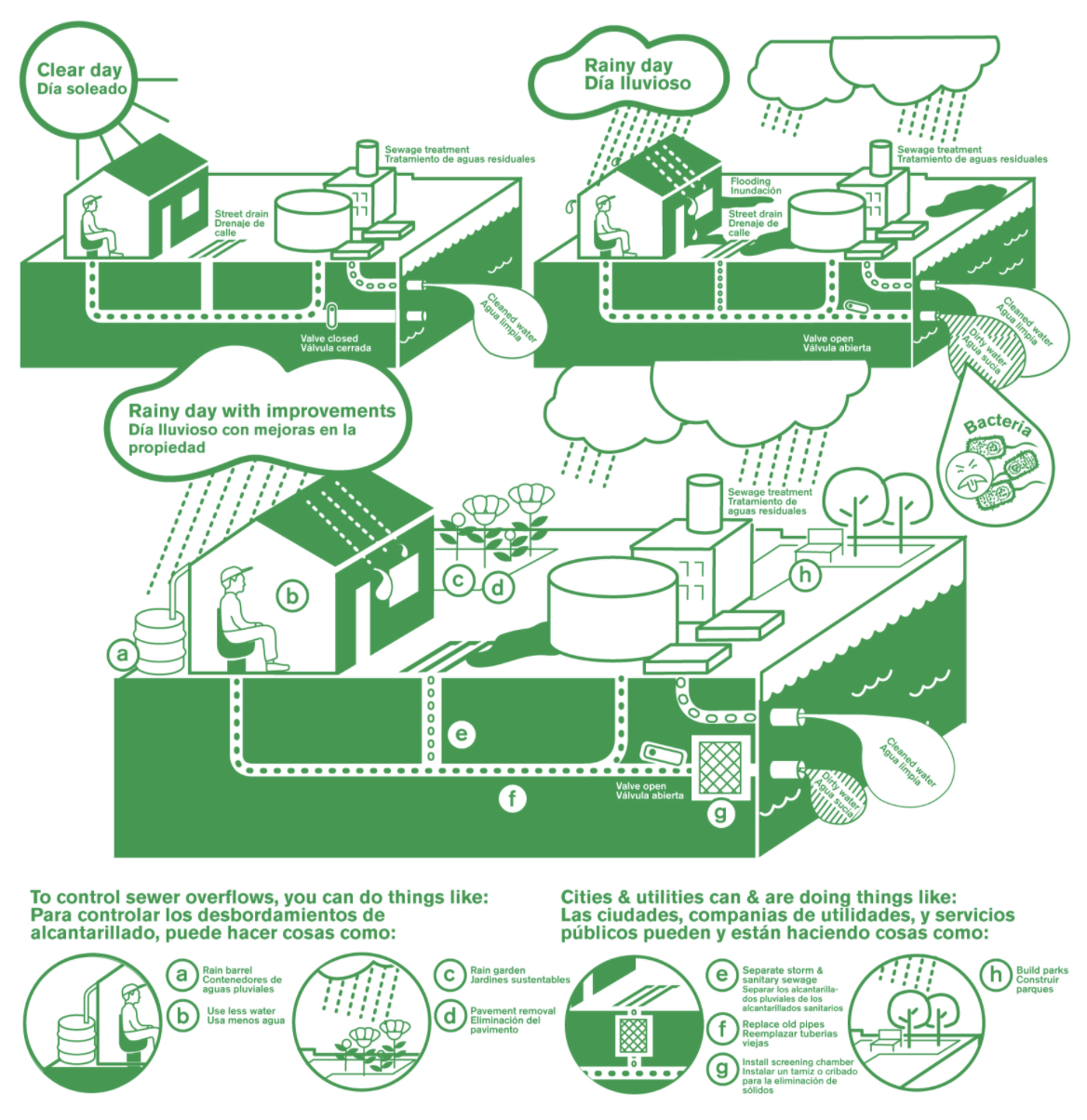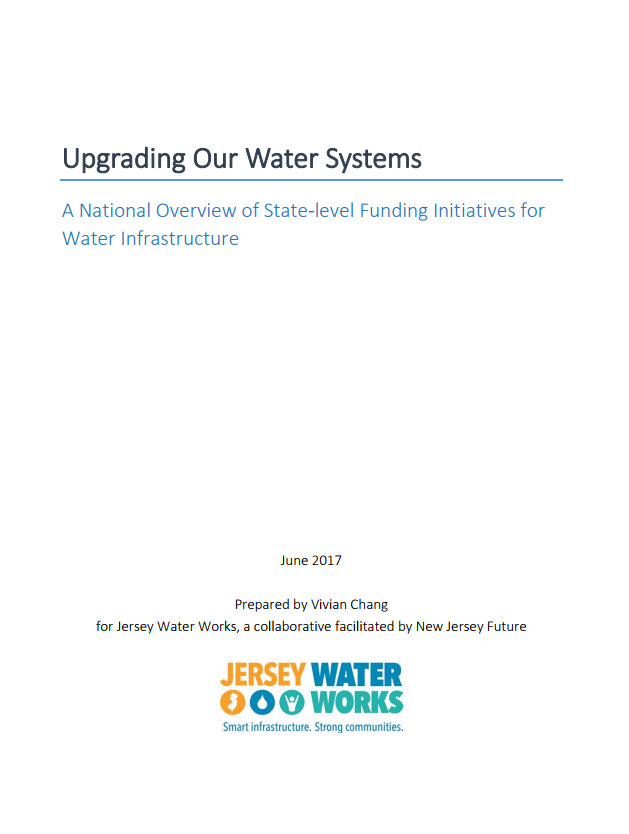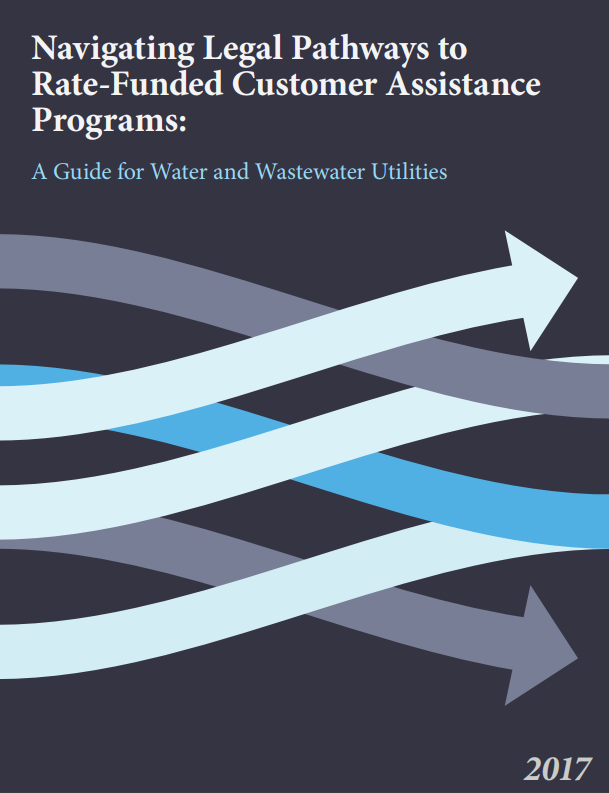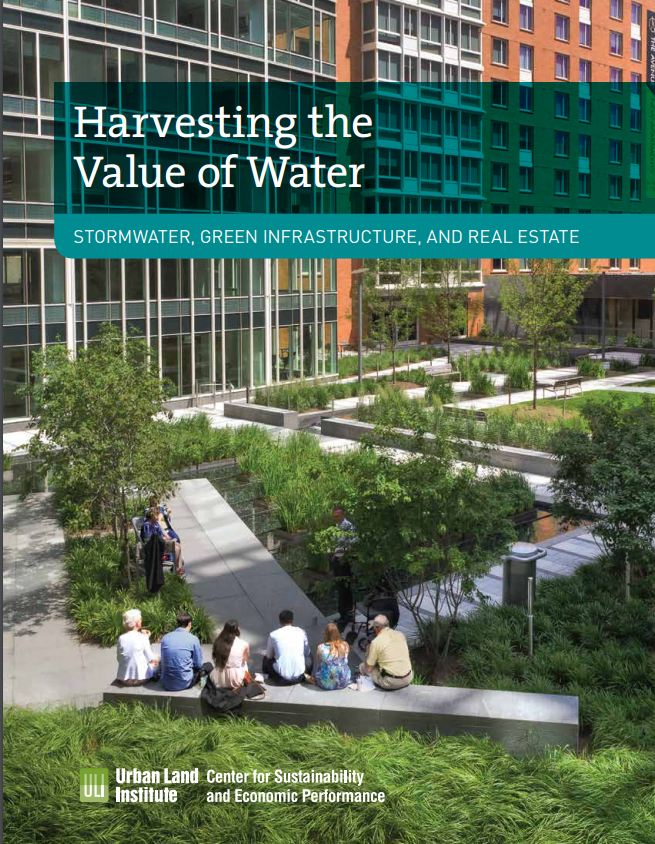The Senate Appropriations Committee directed the Environmental Protection Agency (EPA) to contract with the National Academy of Public Administration to conduct an independent study to create a definition of, and framework for, community affordability of clean water. The findings and recommendations of this report aim to supplement current actions and to assist EPA in providing continued valuable guidance and… Continue reading Developing a New Framework for Community Affordability of Clean Water Services
Archives: Resources
New Jersey Water Supply Plan 2017-2022
The 2017-2022 New Jersey State Water Supply Plan constitutes the second complete revision of the plan. The goal of this document is to form the foundation of a “living” resource able to be updated on a continuous basis as reliable new data becomes available and improved upon as new scientific methods are identified. This updated Plan and the… Continue reading New Jersey Water Supply Plan 2017-2022
How Technology Is Providing Solutions For Clean Water
This resource from Ohio University highlights pollution prevention efforts and technologies engineers are focusing on to improve the safety of drinking water. It contains infographics for innovative technologies including desalinization, irrigation, and wastewater treatment. It is intended to create awareness around the need for these improving technologies to create safer and more sustainable water infrastructures for… Continue reading How Technology Is Providing Solutions For Clean Water
Peak Day Water Demand Management Study
This study, commissioned by Alliance for Water Efficiency, conducts a peak water demand shaving pilot project in Rumson, NJ. The objectives of the study were to: determine the viability of using remotely-controlled irrigation systems to reduce peak water demands and thus delay or avoid costly infrastructure, to test implementation methods, and to discover potential barriers… Continue reading Peak Day Water Demand Management Study
U.S. GAO Recommendations to Enhance EPA’s Oversight of Lead Rule
GAO makes three recommendations, as part of its report, “Additional Data and Statistical Analysis May Enhance EPA’s Oversight of the Lead and Copper Rule”, including for EPA to require states to report data on lead pipes and develop a statistical analysis on the likelihood of LCR violations to supplement its current oversight. EPA agreed with… Continue reading U.S. GAO Recommendations to Enhance EPA’s Oversight of Lead Rule
Lead in School Drinking Water in New Jersey
New Jersey Future released this preliminary analysis of test results reported to and collected by the New Jersey Department of Education in order to help quantify the extent of the problem and recommend actions to ensure schools and communities are being provided all the support they need to remediate the situation.
Educational Signs on Combined Sewer Outfalls
The Jersey Water Works Community Engagement Committee has developed graphics for signage that can be used by combined sewer system cities and towns, organizations, and individuals to educate the general public on combined sewer overflows. These images have been approved by the NJDEP for permit holders to use to help fulfill their NJ CSO permit… Continue reading Educational Signs on Combined Sewer Outfalls
Upgrading Our Systems: A National Overview of State-Level Funding for Water Initiatives
Local and regional water utilities play the lead role in water infrastructure funding by leveraging user rates. In addition, state and local governments typically rely on financing mechanisms like the U.S. Environmental Protection Agency’s State Revolving Fund programs and the U.S. Department of Agriculture’s Rural Development funds. Meanwhile, some states have created programs that raise… Continue reading Upgrading Our Systems: A National Overview of State-Level Funding for Water Initiatives
Navigating Legal Pathways to Rate-Funded Customer Assistance Programs: A Guide for Water and Wastewater Utilities
The at the University of North Carolina Chapel Hill prepared this report to help steer their members through a complex regulatory landscape. In their efforts to design and implement programs that make it easier for low-income customers to pay for water and wastewater services, utilities must navigate a confusing and often ambiguous legal framework that… Continue reading Navigating Legal Pathways to Rate-Funded Customer Assistance Programs: A Guide for Water and Wastewater Utilities
Harvesting the Value of Water: Stormwater, Green Infrastructure, and Real Estate
This report analyzes the stormwater policy landscape and summarizes various real estate developments that have arisen in response. Real estate case studies from across the country demonstrate a range of stormwater policies, featuring management innovations as well as positive financial, operational or design outcomes.

